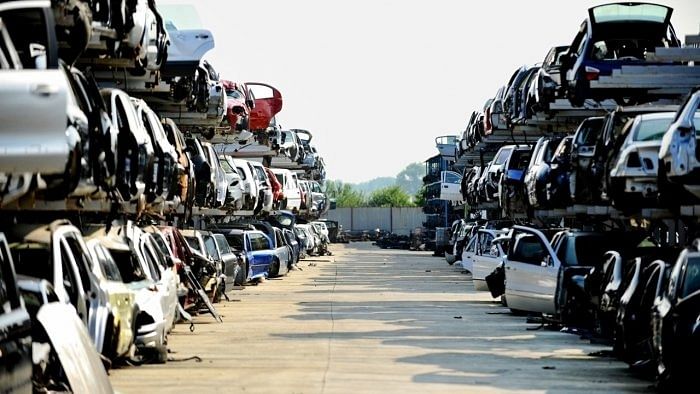
The government has done well to announce the vehicle scrappage policy as a new “voluntary fleet modernisation programme’’. The policy will put in place a regime of mandatory fitness testing for all vehicles once they reach a specified age. More guidelines and details are awaited but the policy broadly says that commercial vehicles that are older than 15 years and personal vehicles older than 20 are eligible for scrappage. The policy is for voluntary compliance, but it carries carrots and sticks. Vehicles above the age limit will have to undergo the fitness test. If they fail the test, they will not get a renewal certificate and won’t be able to move on road. If they pass the test, they will have to undergo the fitness test every five years.
The policy has many salutary aims. Old vehicles are a major source of pollution and so moving them out of circulation will promote public health and help counter climate change. India's cities are among the most polluted in the world. It is a road safety measure also. It will give a big boost to the automobile industry and its ancillary industries as the scrapping of old vehicles will lead to a major increase in production and sales of new vehicles. The minister said that the country has 5.1 million light motor vehicles older than 20 years and 3.4 million light motor vehicles and 1.7 million medium and heavy commercial vehicles over 15 years old and without valid fitness certificates. Strict implementation of the fitness policy could boost the automobile sector’s turnover from the current Rs 4.5 lakh crore to over Rs 10 lakh crore and the government’s GST collections by Rs 30-40,000 crore. This can give a new dimension to the economic recovery after the recession caused by Covid-19.
The policy includes a mix of incentives and disincentives. Vehicle owners will get 4-6% of the ex-showroom price of a new vehicle as scrap value. Manufacturers will be advised to provide a 5% discount on the purchase of a new vehicle against the scrapping certificate, which will also be made tradeable. State governments will be asked to offer a road tax rebate of up to 25% for personal vehicles and up to 15% for commercial vehicles. As a disincentive, the charges for re-registration and fitness certificates will be steeply increased. India does not have a scrappage culture and infrastructure. These will have to be created, and the processes will have to be made transparent and efficient to ensure the best results.